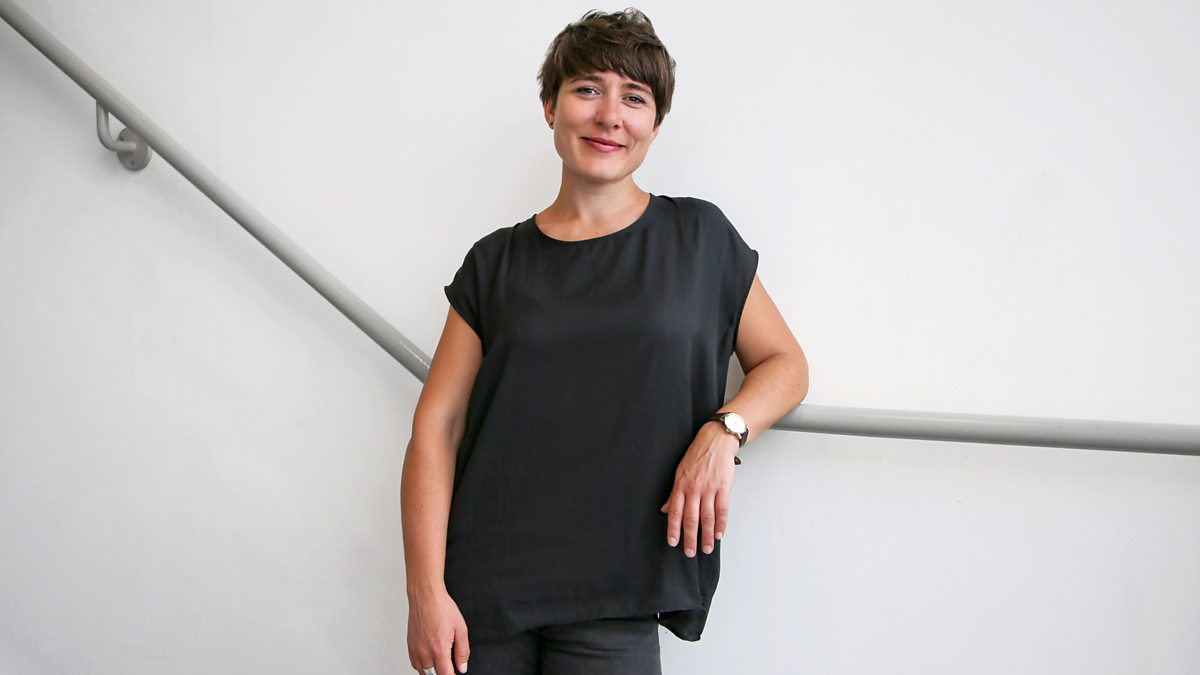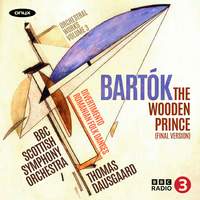Originally posted by HighlandDougie
View Post
BaL 2.12.23 - Bartok: The Miraculous Mandarin
Collapse
Announcement
Collapse
No announcement yet.
X
-
Da BBC! What does it know? From Ms Molleson's website:Originally posted by mikealdren View Post
Don't want to stir things too much but the Beeb seem to think she lives in Glasgow....
https://www.bbc.co.uk/programmes/pro.../kate-molleson
Kate grew up in various parts of Scotland and the far north of Canada and studied clarinet performance at McGill University (Montreal) and musicology at King’s College London, where she researched the operas of Ezra Pound. She was a copy editor, music critic and cycling columnist for the Montreal Gazette and deputy editor of Opera magazine before moving home to Scotland as the Guardian’s classical music critic in 2010. She lives in Edinburgh
And I definitely didn't make that up ...
Comment
-
.
... perhaps she has / has had feet in both camps. In 2019 The Guardian had -
" Kate Molleson
Kate Molleson
"Kate Molleson is a Glasgow-based music critic. She studied performance in Montreal and musicology in London, where she specialised in 1930s experimental radio"
.
... and -
Last edited by vinteuil; 05-12-23, 16:40.
Comment
-
I'm not sure whether a move from Glasow to live in Edinburgh represents a sensible "life choice" - or whether it's treasonous. Having lived in both (and having commuted from Edinburgh to Glasgow for over eight years), I consciously chose to live in neither post-retirement.
A McG, on introducing BaL last Saturday, did say something like, "and joining me from our Edinburgh studio is Kate Molleson". I was going to get the thread back on topic by posting a link to what we've had before as in Erik Chisholm's touching reminiscences about being host to Bartók when he visited Glasgow to perform his music in the 1930s. But I can't find the link.
Comment
-
... this one?Originally posted by HighlandDougie View PostI was going to get the thread back on topic by posting a link to what we've had before as in Erik Chisholm's touching reminiscences about being host to Bartók when he visited Glasgow to perform his music in the 1930s. But I can't find the link.
Originally posted by edashtav View Post
I'm fascinated by Mac's comment about North African rhythms and textures in BB's 1st Piano Concerto.
Some people have identified non-Hungarian influences in his last Concerto.
Erik Chisholm, the Great Scottish 'Modernist' composer, was as keen on Scottish Folk Music as BB was on Hungarian. The two became friends, BB stayed with him in Glasgow and Erik conducted the first GB performances of Bluebeard's Castle. Could there be Scottish inflections in Bartok's 3rd Concerto ?
The following was written by EC's first wife, Diane, after BB's visit to her home in Glasgow at the end of February, 1932.
"Bartok confessed that this [Scottish Folk] was one branch of folk-music he had had no opportunity to study. In fact, I think he had not quite realised just what scope there was in it. To many continentals Scotland just seems to be the top-part of England with no particular characteristics of its own. How wrong they are!. If they travel to the North of Scotland and make contact with the Gaelic speaking population, see our tartans, Celtic Crosses, and hear our piobaireachd music, they may realise that we have certain Asiatic qualities which are not shared by the Sassenach.
Now, Scottish folk music, and especially Piobaireachd happened to be my husband's pet subject and particular study at that time. For years he had been doing considerable research in this line, so of course, he brought out various collections of folk-music and gramophone records, and Bartók listened and studied these for hours. The result of this conversation was, that the very next day Bartók went to a well-known shop in town which supplied all Highland requisites, and came home with a tartan rug, a chanter, all the piobaireachd music he could lay his hands on, and told us that the manager of the firm had arranged with one of our most noted Pipe-Majors to come next day to the Grand Hotel to play the bag-pipes to him (this was one thing my husband hadn’t been able to do.) Bartók was enchanted. It is a moot point whether his studies of the Asiatic piobaireachd had any influence on his subsequent works. In the first movement of his Third Piano Concerto there appears to be some Scottish melodic influence, but then again, the similarity between much of the Hungarian and Scottish Folk music which Bartók himself seized on, is such as to make a definite claim on this matter rather rash."
There's much Bartok in EC's music. Is there evidence that Bartok's last concerto could be called his Piobaireachd? Well, that's a claim far too far, but, maybe, just maybe, there's a dram of Scotch in it.
There is a short clip from Erik Chisholm's 1st Piano Concerto {piobaireachd} played by Danny Driver on Youtube
https://youtu.be/8t1KxFdqDBo
Comment
-
Actually, no, but I hadn't read this reminiscence from Diane Chisholm before - which is fascinating. The idea of BB being blasted by bagpipes is rather sweet (although I bet BB didn't think so). So, grazie molto, Monsieur V for unearthing it. What I was thinking of was written by Chisholm himself. I shall persevere with my searches.Originally posted by vinteuil View Post
... this one?
Comment
-
Not sure about that, but it seems Dausgaard has a flair/penchant for definitive versions: the new release in his Bartok series has the final version of The wooden Prince, again possibly a first?Originally posted by ScotOp69 View PostI'm currently listening to Dausgaard's excellent Onyx recording with the BBC SSO. Apparently this is the definitive version of Peter Bartok's 2000 Edition. Are there other recordings out there which utilise this full uncut score?
Though this time it involves cuts from the more-familiar full version.
Bartók: The Wooden Prince, Divertimento, Romanian Folk Dances. Onyx: ONYX4233. Buy CD or download online. BBC Scottish Symphony Orchestra, Thomas Dausgaard
This is the Presto site blurb:
‘From a musical point of view, but especially with regard to the stageworthiness of the work, these cuts represent an absolute improvement’ Bartok wrote to his publisher when he had finished his definitive revision of his Wooden Prince – cutting out much of the music relating to specific stage action, but also generally tightening the symphonic structure, making its large-scale mirror form appear clearer. Normally performed and recorded in its non-revised full-length version, it has been a joy now to follow Bartok’s inspired last wish revision of this mystic, vital, otherworldly, and grotesque fantasy music. (Thomas Dausgaard)
This album is the third in Thomas Dausgaard’s survey of Bartok’s orchestral works, and as before, he has recorded a version of a major work seldom heard. The rare and final version of the Wooden Prince is coupled with the masterful Divertimento and the Romanian Folk Dances.
Comment
-
It's funny I'm definitely a completist.For me every note is essential. Like the recent recording of Gershwin's An American in Paris as edited by the Gershwin Initiative at the University of Michigan. All of Gershwin's previous cuts are opened plus all of the original Orchestration. It's a fascinating listen.
Comment
-
By the way thanks Pulcinella. I just can't see how cutting music can possibly be better. But there you are. Incidentally I'm really enjoying discovering Bartok's 1st Suite for Orchestra again played by the BBC SSO under Dausgaard. The Onyx website says its a premier recording but I'm not so sure about that. Maybe already released by Hungaroton?
Comment




Comment